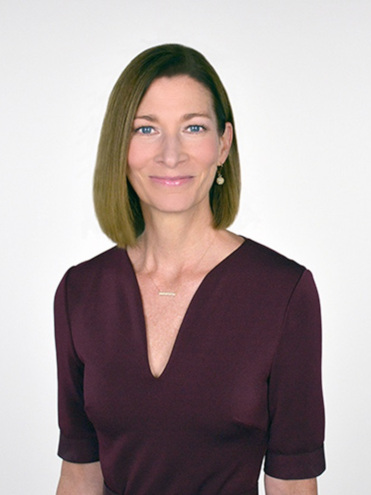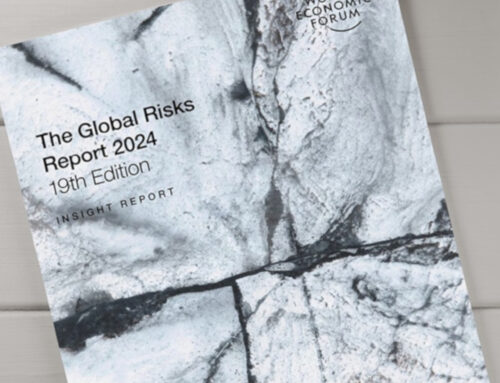

Tackling the challenge of global sustainability starting on our own turf
Share this
Zurich North America CEO Kathleen Savio explains how business can be a platform for positive change in addressing critical, global issues such as climate change. She highlights affirmative steps that Zurich is taking to continue to reduce the company’s own carbon footprint.
Businesses can be a strong platform to lead change. And with mounting, public concern about climate change and the future viability of our planet, all stakeholders share a responsibility and an opportunity to create a world we’re proud to transition to the next generation. Many businesses are taking action to do their part, and at Zurich, we are increasing our commitment to limit the effects of climate change within our own business to positively affect the outside world.

Experience has shown that having a strategy incorporating a commitment to sustainability makes good economic sense. But even if eyes were not watching the performance of companies with defined sustainability objectives, it’s simply the right thing to do. Consider the straightforward definition of sustainability established in the UN’s Report of the World Commission on Environment and Development: Our Common Future.1
“Sustainable development is development that meets the needs of the present without compromising the ability of future generations to meet their own needs.”
We would add that promoting sustainability is a responsibility that must be shared by both government and the private sector, because neither can do it alone.
At Zurich, we gladly accept our role in this shared responsibility. We are greatly encouraged that other private businesses are also becoming platforms for change, creating value for their customers, their employees and society while making their own operations more sustainable and resilient.
Indeed, the principle of resilience is inextricably linked to sustainability. Building resilience means helping individuals, organizations and communities respond to changing conditions, challenges and crises in ways that enable them to emerge stronger on the other side. That, of course, is the fundamental role insurance has played for centuries. Zurich has a long, proud history of helping customers and communities around the world become more resilient.
Today, Zurich is just as committed to doing more to reduce our environmental footprint and join other global businesses in tackling challenging societal issues, such as climate change. Aligned with that commitment, we have set some ambitious, near-term operational targets. Among these are:
- Reduction of internal paper usage by 80% by year-end 2019. The goal is to essentially become paperless with the introduction of new technologies and by encouraging a cultural shift among employees not to print unless absolutely essential.
- Total elimination of single-use plastics, such as bottles, cups, straws, stirrers and take-away containers, substituting more sustainable alternatives in all of our offices by the end of 2019.
- Transition to 100% renewable energy throughout Zurich’s global operations by the end of 2022.
These goals are in addition to what we are already doing to make a difference. For example, we have reduced energy and water consumption by 30% in our new Leadership in Energy and Environmental Design (LEED) platinum®2 -certified North America headquarters in Schaumburg, Illinois, compared to our previous location in the same community. The global LEED organization notes that buildings account for 38% of all CO2 emissions worldwide as well as 13.6% of all potable water utilization. LEED estimates that buildings in North America account for more than 73% of all electricity usage. Our headquarters’ platinum designation represents the highest-level of LEED certification, demonstrating our commitment to sustainability. We are proud to be among the more than 79,000 projects participating in LEED certification across 160 countries and territories.
Even with the progress achieved by organizations such as Zurich and many others around the globe, much more needs to be done. Zurich recently took an important step aimed at helping to reduce the use of carbon-intensive fossil fuels by expanding our existing thermal coal policy to include fuels produced from oil sands and oil shales. Our intent is to help drive a deeper conversation regarding mid-to-long-term transition plans for reducing the use of these fuels and their impacts on the global environment.
Ensuring a livable world for future generations is the responsibility of every global citizen, whether that citizen is an individual or an organization. Even small steps taken by a population numbering in the billions can alter our environmental trajectory for the better.
Zurich is dedicated to continuing to play a leadership role in driving global sustainability. We invite and encourage everyone to join us in this important, world-changing effort. For a global view of Zurich’s sustainability initiatives and activities, please visit: www.zurich.com/en/sustainability.
1 “Report of the World Commission on Environment and Development: Our Common Future” (The Brundtland Report). http://www.un-documents.net/our-common-future.pdf
2 The LEED Platinum® trademark is owned by the U.S. Green Building Council® and is used with permission.
By: Kathleen Savio
CEO, Zurich North America

Tackling the challenge of global sustainability starting on our own turf
Share this
Zurich North America CEO Kathleen Savio explains how business can be a platform for positive change in addressing critical, global issues such as climate change. She highlights affirmative steps that Zurich is taking to continue to reduce the company’s own carbon footprint.
Businesses can be a strong platform to lead change. And with mounting, public concern about climate change and the future viability of our planet, all stakeholders share a responsibility and an opportunity to create a world we’re proud to transition to the next generation. Many businesses are taking action to do their part, and at Zurich, we are increasing our commitment to limit the effects of climate change within our own business to positively affect the outside world.

Experience has shown that having a strategy incorporating a commitment to sustainability makes good economic sense. But even if eyes were not watching the performance of companies with defined sustainability objectives, it’s simply the right thing to do. Consider the straightforward definition of sustainability established in the UN’s Report of the World Commission on Environment and Development: Our Common Future.1
“Sustainable development is development that meets the needs of the present without compromising the ability of future generations to meet their own needs.”
We would add that promoting sustainability is a responsibility that must be shared by both government and the private sector, because neither can do it alone.
At Zurich, we gladly accept our role in this shared responsibility. We are greatly encouraged that other private businesses are also becoming platforms for change, creating value for their customers, their employees and society while making their own operations more sustainable and resilient.
Indeed, the principle of resilience is inextricably linked to sustainability. Building resilience means helping individuals, organizations and communities respond to changing conditions, challenges and crises in ways that enable them to emerge stronger on the other side. That, of course, is the fundamental role insurance has played for centuries. Zurich has a long, proud history of helping customers and communities around the world become more resilient.
Today, Zurich is just as committed to doing more to reduce our environmental footprint and join other global businesses in tackling challenging societal issues, such as climate change. Aligned with that commitment, we have set some ambitious, near-term operational targets. Among these are:
- Reduction of internal paper usage by 80% by year-end 2019. The goal is to essentially become paperless with the introduction of new technologies and by encouraging a cultural shift among employees not to print unless absolutely essential.
- Total elimination of single-use plastics, such as bottles, cups, straws, stirrers and take-away containers, substituting more sustainable alternatives in all of our offices by the end of 2019.
- Transition to 100% renewable energy throughout Zurich’s global operations by the end of 2022.
These goals are in addition to what we are already doing to make a difference. For example, we have reduced energy and water consumption by 30% in our new Leadership in Energy and Environmental Design (LEED) platinum®2 -certified North America headquarters in Schaumburg, Illinois, compared to our previous location in the same community. The global LEED organization notes that buildings account for 38% of all CO2 emissions worldwide as well as 13.6% of all potable water utilization. LEED estimates that buildings in North America account for more than 73% of all electricity usage. Our headquarters’ platinum designation represents the highest-level of LEED certification, demonstrating our commitment to sustainability. We are proud to be among the more than 79,000 projects participating in LEED certification across 160 countries and territories.
Even with the progress achieved by organizations such as Zurich and many others around the globe, much more needs to be done. Zurich recently took an important step aimed at helping to reduce the use of carbon-intensive fossil fuels by expanding our existing thermal coal policy to include fuels produced from oil sands and oil shales. Our intent is to help drive a deeper conversation regarding mid-to-long-term transition plans for reducing the use of these fuels and their impacts on the global environment.
Ensuring a livable world for future generations is the responsibility of every global citizen, whether that citizen is an individual or an organization. Even small steps taken by a population numbering in the billions can alter our environmental trajectory for the better.
Zurich is dedicated to continuing to play a leadership role in driving global sustainability. We invite and encourage everyone to join us in this important, world-changing effort. For a global view of Zurich’s sustainability initiatives and activities, please visit: www.zurich.com/en/sustainability.
1 “Report of the World Commission on Environment and Development: Our Common Future” (The Brundtland Report). http://www.un-documents.net/our-common-future.pdf
2 The LEED Platinum® trademark is owned by the U.S. Green Building Council® and is used with permission.
By: Kathleen Savio
CEO, Zurich North America




